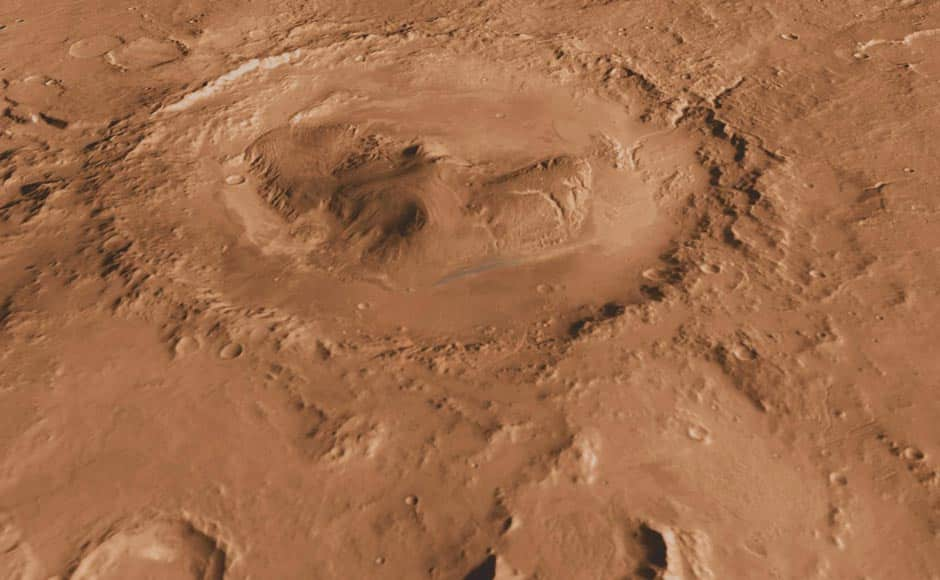Washington D.C: Wet paleoclimate of Mars has been revealed by ancient lakes at Gale Crater.
In a recent paper, the Mars Science Laboratory (MSL) team presents recent results of its quest to not just follow the water but to understand where it came from, and how long it lasted on the surface of Mars so long ago.
The story that has unfolded is a wet one: Mars appears to have had a more massive atmosphere billions of years ago than it does today, with an active hydrosphere capable of storing water in long-lived lakes.
The MSL team has concluded that this water helped to fill Gale Crater, the MSL rover Curiosity's landing site, with sediment deposited as layers that formed the foundation for the mountain found in the middle of the crater today.
Curiosity has been exploring Gale Crater, which is estimated to be between 3.8 billion and 3.6 billion years old, since August 2012. In mid-September 2014, the rover reached the foothills of Aeolis Mons, a three-mile-high layered mountain nicknamed "Mount Sharp" in honor of the late Caltech geologist Robert Sharp. Curiosity has been exploring the base of the mountain since then.
Observations from the rover suggest that a series of long-lived streams and lakes existed at some point between 3.8 billion to 3.3 billion years ago, delivering sediment that slowly built up the lower layers of Mount Sharp, says Ashwin Vasavada (PhD '98), MSL project scientist.
However, this series of long-lived lakes is not predicted by existing models of the ancient climate of Mars, which struggle to get temperatures above freezing, he added.
This mismatch between the predictions of Mars's ancient climate that arise from models developed by paleoclimatologists and indications of the planet's watery past, as interpreted by geologists, bears similarities to a century-old scientific conundrum-in this case, about Earth's ancient past.
The study appears in the journal Science.
















